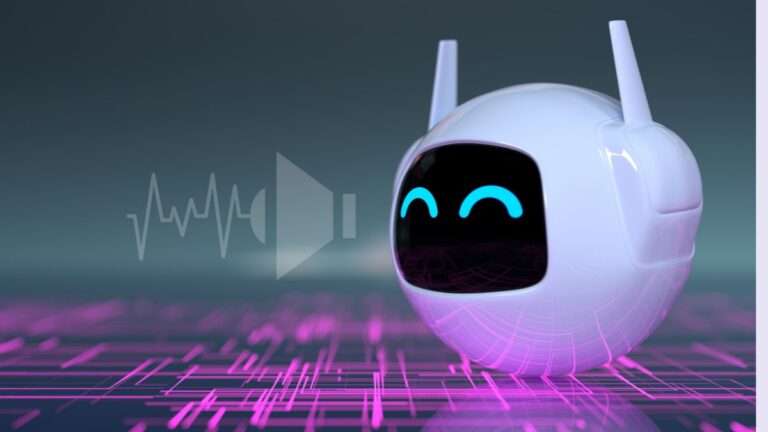AI Voiceover Tools: Voiceovers are an extremely important component of both the audio production and multimedia development industries. A voice that is fascinating may be quite useful in a variety of contexts, including videos, podcasts, television ads, and even virtual assistants. Voiceover technology has taken a great leap ahead thanks to the development of artificial intelligence (AI), which has made the process far simpler and more readily available than in the past. In this article we will discuss the top 10 AI voiceover tools that are causing a revolution in the audio production business. These tools are helping to create more natural and human sounding recordings.
1. The GPT-3 from OpenAI
OpenAI’s GPT-3 is a powerful artificial intelligence tool that, thanks to its sophisticated natural language processing algorithms, can create writing and voice that is convincingly human. Using GPT-3, developers have the ability to produce artificially intelligent voiceovers for a broad variety of uses, including narrating films and giving voice assistance.
Principal Attributes:
- Generation of a voice that has a natural quality.
- Tune and flavor that can be altered.
- The support of a number of different languages.
2. The text-to-speech functionality of Google Cloud
Google Cloud Text-to-voice is an advanced technology driven by AI that can transform written text into voice that sounds natural. Users are given the ability to choose the voice that is most suited to their particular projects from among a large range of voices with a variety of accents and tones.
Principal Attributes:
- There are a number of available voices.
- Prosody and intonation that are true to life.
- Integration with Google Cloud services is straightforward.
3. Polly from the Amazon
Amazon Polly is the artificial intelligence (AI)-driven text-to-speech service offered by Amazon Web Services (AWS). It is capable of producing realistic speech synthesis in a variety of voices and languages. Because of its adaptability and scalability, Polly may be used effectively for projects of varying sizes.
Principal Attributes:
- Support for several languages.
- Options for personalizing one’s voice.
- Audio that is streamed in real time.
4. The text-to-speech capabilities of IBM Watson
IBM Watson Text to Speech is one of the AI Voiceover Tools that is hosted in the cloud that transforms written text into spoken words that seem natural. It provides a selection of voices as well as settings that may be altered to get the desired impact on the voice.
Principal Attributes:
- voices that are both expressive and realistic.
- Both the tempo of speech and the pitch may be adjusted.
- Additionally, Personalization of the pronunciation.
5. iSpeech
iSpeech is a text-to-speech technology that is powered by artificial intelligence and offers a user-friendly interface for the development of voiceovers. In order to appeal to viewers all around the world, it features a number of different people speaking in a variety of dialects and languages.
Principal Attributes:
- Voice synthesis of the highest quality.
- Correction of the pronunciation.
- Offline software development kit made accessible for mobile applications.
6. Acapela Group
Acapela Group provides organizations as well as developers with a spectrum of artificial intelligence-based voiceover solutions. The technology is also developed by Acapela Group guarantees the production of realistic and interesting audio material by using a broad diversity of voices and languages.
Principal Attributes:
- Multiple voices to choose from.
- Support for several languages.
- Prosody and cadence that can be modified.
7. CereProc, Inc.
CereProc is an industry leader in the production of personalized artificial intelligence voices for a wide range of applications, such as voiceovers for videos, virtual assistants, and audiobooks. Their technology is also geared on the delivery of voices that sound very genuine and expressive.
Principal Attributes:
- Creating a voice from scratch.
- a tone and inflection that are natural.
- Integration with a diverse set of operating systems and software.
8. ReadSpeaker
ReadSpeaker provides AI voiceover solutions for a variety of sectors, such as e-learning, healthcare, and customer support, among others. Its technique focuses on creating speech that is both clear and natural, and it may be used for a wide range of purposes.
Principal Attributes:
- Personalized solutions for your voice.
- Accessibility improvements made to the spoken word.
- Support for several languages and operating systems.
9. ResponsiveVoice
ResponsiveVoice is an artificial intelligence voiceover tool that is developed for use by corporations and developers. It also offers a straightforward application programming interface (API) for incorporating natural-sounding text-to-speech features into websites and programs.
Principal Attributes:
- Simple incorporation thanks to the API.
- A diverse range of voices to choose from.
- Design that adapts to several types of gadgets.
10. SpeechKit (slang)
For content producers and news publishers, SpeechKit provides a text-to-speech solution that is powered by artificial intelligence. It makes it possible to generate audio versions of articles and postings, which increases both accessibility and engagement among users.
Principal Attributes:
- Conversion of articles to audio formats.
- Synthesis of the human voice automatically.
- Integration with several kinds of content management systems.
The final word
AI voiceover tools have fundamentally changed the audio production business by making available a vast array of possibilities for the creation of voiceovers that are both interesting and authentic-sounding. These artificial intelligence solutions may help you save time and money while producing high-quality results, regardless of whether you are a content producer, a developer, or an organization trying to improve your audio material. We can anticipate the development of artificial intelligence voiceover solutions that are increasingly more advanced and adaptable as technology continues to make advances, which will further revolutionize the ways in which we create and consume audio material.





